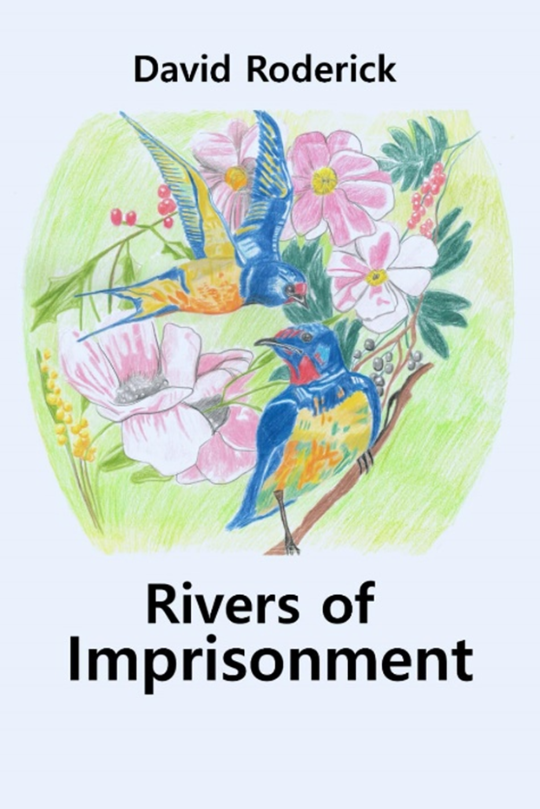whisper

Rivers of Imprisonment: Redefining the Metrics of Economic Success
Written by David Roderick, ‘Rivers of Imprisonment’ challenges the foundation of modern economic metrics with a compelling argument to redefine gross domestic product (GDP). In this bold debut, Roderick takes readers on a thought-provoking journey, urging a return to tangible measures of industrial output rather than the abstract flow of monetary transactions. With its blend of historical insight and fresh economic critique, the book serves as both an accessible introduction and a foundation for a larger, forthcoming body of work.
Media Contact
- David Roderick
- Email: battleaxe.firebrand@gmail.com
UNITED KINGDOM
‘Rivers of Imprisonment’ by David Roderick is set to revolutionise the way GDP is understood and measured. Moving beyond the traditional view of money as the ultimate measure of wealth, Roderick presents an unflinching argument: GDP must reflect real, tangible production rather than abstract monetary transactions. This introductory volume sets the stage for a forthcoming series that will expand on critical topics such as taxation and land utilisation.
Written in a style that blends classical English grammar with modern readability, ‘Rivers of Imprisonment’ invites both seasoned economists and curious new-comers to reimagine the fundamental principles that govern economic thought. The author’s meticulous attention to detail and commitment to factual accuracy ensure a work that is both rigorous and accessible. Readers will find footnotes that not only clarify economic concepts but also delve into the evolution of English syntax, reflecting Roderick’s dedication to preserving and celebrating linguistic heritage.
Synopsis
“One of the take-home messages from this book is that the gross domestic product cannot be measured in terms of money. It must always be measured in terms of real actual tangible stuff, i.e. in terms of industrial output as a real thing, not an imaginary concept based upon how many units of money get pushed around.” says Roderick.
The way we measure economic success has profound implications for society.
When GDP is reduced to an abstract concept—numbers and currency that shift without reflection of real output—we lose sight of what truly matters: tangible production and the wellbeing of our communities. This book is an attempt to bridge that gap. It has been written it to be both rigorous and accessible, blending historical insights with practical critiques of modern metrics.
Early reviews of the book have been glowing. See a sampling below:
“I really like the simplicity with which the see-saw explains the reality and changed perception of price, cost, and worth. It really provoked thought. I’m not an economist or mathematician but I was pretty riveted and the way it’s explained does make the subject more accessible for such a reader.”
Louise Lamont
“I thought this book meticulously worked on with a painstaking effort to research. The book is well-structured with relevant historical background, supporting diagrams, and clear explanations with suitable quotes. I think this book is an interesting fusion of many academic subjects that readers would appreciate and value.”
Martin West
“I think that this is a well-researched thought-out presented article. The author clearly knows their subject and showed this with a clear understanding of arguments involved, with clear, concise, reference to quotes from learned economists. I enjoyed reading through this and thank the author for the opportunity.”
John Smith
The author adds,
“I would suggest that nothing other than innate skill and talent and acumen for learning technique did qualify Van Gogh to paint, or Einstein to think about physics. I have always seen and perceived that which others cannot see or readily comprehend.
My introductory book is a prequel to a wider body of work about taxation and land management. This is something I may be in a position to publish in stages: the first third of which at this time next year (end of 2025). I have been researching this book since the year 1999.
I wrote the book in 19th century Cumberland grammar, which has strong parallels to 17th century grammar because I find the prepositions in modern English too chaotic to be of much use. I wish to revamp 300 years of written history which the past 50 years of morphed English, in my opinion, actually seeks to replace rather than build upon.”
‘Rivers of Imprisonment’ is a must-read for those seeking to challenge traditional economic thought and explore a more meaningful way to measure progress. The book is available now through Skellington Publishing and Amazon short link or Amazon long link.
About the Author
David Roderick is a renegade economic thinker and author who grew up in Carlisle, Cumbria. Educated in state schools, Roderick pursued engineering at York University before embarking on independent research into political economy. His unique upbringing and self-directed studies have shaped his unconventional perspectives on economics and language. Drawing inspiration from the dialects and grammar of his home region, Roderick writes with a voice that is both timeless and accessible. Rivers of Imprisonment marks the beginning of a larger body of work that seeks to redefine the metrics of economic success.